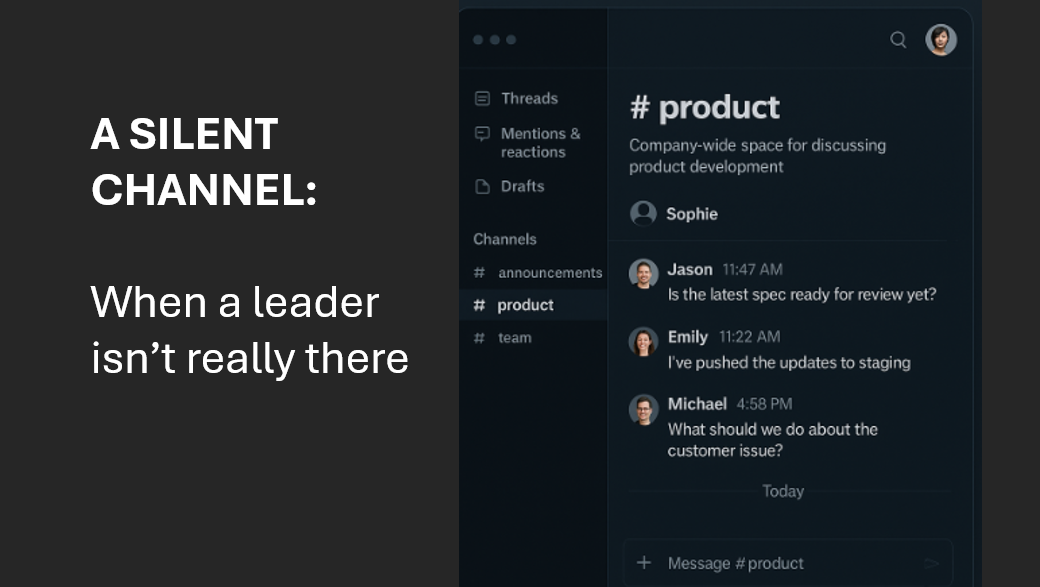Traditional performance management systems are failing organisations. The once-a-year review, the rigid quarterly check-ins, the checkbox mentality – these approaches treat performance as an event rather than an ongoing culture.
But forward-thinking leaders are discovering a more effective path: transforming performance management from isolated events into a continuous performance culture that develops people, enables them to flourish and drives results.
The Fundamental Shift: From Event to Culture
The most significant insight from successful performance transformations is simple yet powerful: performance is an ongoing process of engagement, not an event. This represents a fundamental departure from the traditional approach of scheduled reviews, towards a more agile, human-centered methodology.
Both organisational and individual ownership need to play their part for this shift to be successful. It’s easy to assume that it’s the organisation’s job to make people perform, but that completely misses how human beings operate. The key lies in engaging people in their own performance, creating a partnership where individuals take ownership and accountability for their own development.
Understanding the ROI: What’s In It For Leaders?
Leaders often question the value proposition of investing more time in performance conversations. The benefits, however, compound significantly over time:
De-risking Future Success: By developing team members’ problem-solving capabilities, leaders essentially make themselves ‘redundant’ in day-to-day operations. This frees them to focus on bigger, more strategic challenges while their team handles complexities they previously managed alone.
Reducing Attrition Costs: When talented people leave due to lack of growth opportunities, organisations typically face 6-9 months of lost productivity while they find and train replacements. The financial and operational impact of this cycle far exceeds the time they would be investing in regular development conversations.
Creating a Snowball Effect: Leaders who invest in developing others also create exponential growth opportunities for themselves and their organisations.
The Modern Challenge: Beyond Traditional Performance Management
Traditional performance management systems emerged from a framework that emphasised an individual’s contribution. However, modern organisations operate through collaboration and team dynamics, making these older models increasingly ineffective.
Today’s performance culture must acknowledge that work has evolved from rigid operations to something more akin to agile project management – requiring regular touchpoints, continuous feedback, and adaptive approaches rather than formal annual assessments.
Practical Implementation: Transforming One-to-Ones
The most accessible entry point for building performance culture lies in reimagining one-to-one meetings. Many leaders default to operational agendas: status updates, problem-solving, and task management. However, you have a significant opportunity to restructure these regular touchpoints.
The Asynchronous Approach: Move routine updates and status reports outside the face-to-face meeting, through shared documents or brief written summaries. This creates space for meaningful development conversations during precious one-to-one time.
Little and Often Philosophy: Rather than waiting for formal review periods, integrate developmental conversations into regular cadence. The athletic coaching analogy is powerful here – Olympic coaches don’t meet with athletes once a year; they have numerous ongoing conversations, providing continuous feedback and adjustment.
Mastering the Art of Developmental Conversations
The quality of performance culture ultimately depends on leaders’ conversational skills. Even the most sophisticated performance management system will fail if leaders cannot hold effective developmental conversations.
Successful developmental conversations require four core elements:
- Thoughtful Preparation: Use simple frameworks rather than over-preparing to the point of rigidity.
- Fully present: Commit to being completely engaged – turn off notifications, eliminate distractions, and focus entirely on the individual.
- Active Attention: Pay attention not just to what’s being said, but how it’s being said, what’s not being said, and the nonverbal communication.
- Quality Questions: Ask questions that prompt thinking rather than funnel people toward predetermined answers.
The Power of Thinking Prompts
One of the most transformational aspects of developmental conversations is the ‘thinking prompt’ – questions or challenges that encourage individuals to see their situations differently.
A simple reframe like “What would be different if you saw this as an advantage rather than a challenge?” can unlock entirely new approaches and performance levels.
The metric for success isn’t the length of conversations but the number of meaningful pauses – moments where individuals stop and genuinely think about their situation in new ways.
Overcoming Implementation Barriers
The Psychological Contract
When they are shifting to a more developmental conversational style, leaders need to prepare their team members for this change. People accustomed to directive leadership may initially view coaching questions with suspicion, wondering if they’re being tested or evaluated.
Clear psychological contracting – openly discussing the shift in approach and agreeing on how development conversations will work – prevents misunderstanding and builds trust in the new process.
Organisational Alignment
Performance culture cannot succeed when organisational rewards and metrics remain focused solely on short-term results. If leaders are evaluated and rewarded based only on quarterly outcomes, they’ll naturally prioritise immediate demands over longer-term development investments.
Organisations must make it clear that development capabilities are an integral part of leadership effectiveness, not an optional add-on when there happens to be time available.
Key Takeaways for Leaders
- Start with Your Best People: Identify your highest performers and consider what conversations you wish you’d had if they were to leave tomorrow. Then have those conversations.
- Practice the Fundamentals: Focus on being present, paying attention, and asking quality questions. These skills improve with deliberate practice in everyday conversations.
- Embrace the Long Game: Performance culture is a long-term investment that requires consistency even during busy periods. The medium and long-term benefits far outweigh the short-term investment of time.
- Model the Behaviour: Use developmental conversational approaches when you are implementing these changes with your team. Being directive about becoming more coaching-oriented creates cognitive dissonance.
The Cultural Imperative
Building a performance culture isn’t an HR initiative – it’s a leadership imperative that affects everyone in the organisation. When performance becomes embedded in how teams operate, rather than relegated to scheduled events, organisations create environments where people naturally grow, contribute more effectively, and stay engaged over time.
The shift from performance management to performance culture represents more than a process change; it’s a fundamental reimagining of how humans develop and contribute in modern organisations.
Leaders who master this transition will find themselves not just managing performance, but cultivating it as a natural outcome of their leadership approach.
A reminder; in the latest episode of our new podcast, ‘Impactful Conversations’, we explore the topic of this article in more detail and give you actionable takeaways you can implement to enhance your leadership skills.You can listen here or wherever you get your podcasts.





